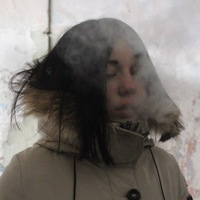
сделать доклад о Исландии
 0
0
 0
0
Ответы на вопрос
 Внимание! Ответы на вопросы дают живые люди. Они могут содержать ошибочную информацию, заблуждения, а также ответы могут быть сгенерированы нейросетями. Будьте внимательны. Если вы уверены, что ответ неверный, нажмите кнопку "Пожаловаться" под ответом.
Внимание! Ответы на вопросы дают живые люди. Они могут содержать ошибочную информацию, заблуждения, а также ответы могут быть сгенерированы нейросетями. Будьте внимательны. Если вы уверены, что ответ неверный, нажмите кнопку "Пожаловаться" под ответом.

Исландия-островная страна,расположенная в северной части Атлантического океана.
Территория государства состоит из острова Исландия, площадью 103 тыс. км2.
Заселение Исландии произошло в IX веке в результате объединения Норвегии под властью короля Харальда I. Многие семьи, вступившие в конфликт с Харальдом, были вынуждены бежать в поисках нового места для жизни.
По мере заселения в Исландии сформировалась государственная система. В каждой области был тинг (собрание, аналог древнерусского веча), на котором вершился суд и решались споры; для решения наиболее важных вопросов представители областей собирались в начале лета на альтинг под управлением говорящего законы. Впервые альтинг был созван в 930 году, и именно с этой даты отсчитывается эпоха народовластия.
В 1262 году Исландия была вынуждена подписать так называемый «Старый договор» с Норвегией, по которому она признавала верховную власть норвежских королей, а те, в свою очередь, обязывались направлять исландцам ежегодно по несколько кораблей с лесом, зерном и другими товарами.
После расторжения датско-норвежской унии в 1814 году островные владения Норвегии, включая Исландию, оставили в составе Дании. В 1845 году был воссоздан парламент как законосовещательный орган. Он получил древнеисландское название «альтинг».
В результате более ста лет мирной борьбы за независимость 1 декабря 1918 года Исландия была объявлена независимым королевством в личной унии с Данией. В течение Второй мировой войны немецкая оккупация Дании 9 апреля 1940 года разорвала связь между Данией и Исландией. В мае 1940 года Великобритания захватывает Исландию и в 1941-ом передаёт право оккупации острова США. С 17 июня 1944 года Исландия обретает полную независимость и становится респу
 0
0
 0
0

Introduction to Iceland
Iceland, officially known as the Republic of Iceland, is a Nordic island country located in the North Atlantic Ocean. It is situated between Greenland and Norway, and it is the westernmost country in Europe. Iceland has a population of approximately 366,000 people and covers an area of about 103,000 square kilometers.
Geography and Climate
Iceland is known for its stunning natural landscapes, including volcanoes, geysers, hot springs, glaciers, and waterfalls. The country is characterized by a diverse terrain, with mountains, plateaus, and coastal lowlands. The largest glacier in Europe, Vatnajökull, is located in Iceland.
The climate in Iceland is considered to be subarctic, with mild winters and cool summers. The country experiences frequent changes in weather, and it is known for its strong winds. The Gulf Stream, a warm ocean current, has a moderating effect on Iceland's climate, making it milder than its latitude would suggest.
History and Culture
Iceland has a rich history that dates back to the settlement by Norse Vikings in the 9th century. The country was ruled by Norway and later Denmark before gaining independence in 1944. Today, Iceland is a parliamentary republic with a multi-party system.
The Icelandic culture is influenced by its Norse heritage and has a strong emphasis on literature, art, and music. The country is known for its sagas, which are medieval literary works that tell stories of the early settlers. Icelandic is the official language, and the country has a high literacy rate.
Economy and Tourism
Iceland has a mixed economy with a combination of free-market principles and extensive welfare benefits. The country's economy is primarily based on fishing, renewable energy, and tourism. Iceland is known for its geothermal energy resources, which provide a significant portion of the country's electricity and heating needs.
Tourism has become an important industry in Iceland, attracting visitors from around the world who come to experience the country's unique natural beauty. Popular tourist attractions include the Blue Lagoon, the Golden Circle route, and the Northern Lights.
Human Rights and Social Issues
Iceland is known for its strong commitment to human rights and gender equality. The country consistently ranks highly in global indices measuring gender equality, and it was the first country in the world to have an openly gay head of government.
Iceland has made significant progress in addressing social issues such as poverty, education, and healthcare. The country has a comprehensive social welfare system that provides universal healthcare and education, as well as support for those in need.
Conclusion
In conclusion, Iceland is a fascinating country with a unique blend of natural beauty, rich history, and a commitment to human rights. Its stunning landscapes, vibrant culture, and progressive social policies make it a popular destination for travelers from around the world. Whether you're interested in exploring volcanoes, relaxing in geothermal spas, or learning about Viking history, Iceland has something to offer for everyone.
Is there anything specific you would like to know about Iceland?
 0
0
 0
0
Топ вопросов за вчера в категории Биология
Последние заданные вопросы в категории Биология
-
Математика
-
Литература
-
Алгебра
-
Русский язык
-
Геометрия
-
Английский язык
-
Химия
-
Физика
-
Биология
-
Другие предметы
-
История
-
Обществознание
-
Окружающий мир
-
География
-
Українська мова
-
Информатика
-
Українська література
-
Қазақ тiлi
-
Экономика
-
Музыка
-
Право
-
Беларуская мова
-
Французский язык
-
Немецкий язык
-
МХК
-
ОБЖ
-
Психология
-
Физкультура и спорт
-
Астрономия
-
Кыргыз тили
-
Оʻzbek tili




















